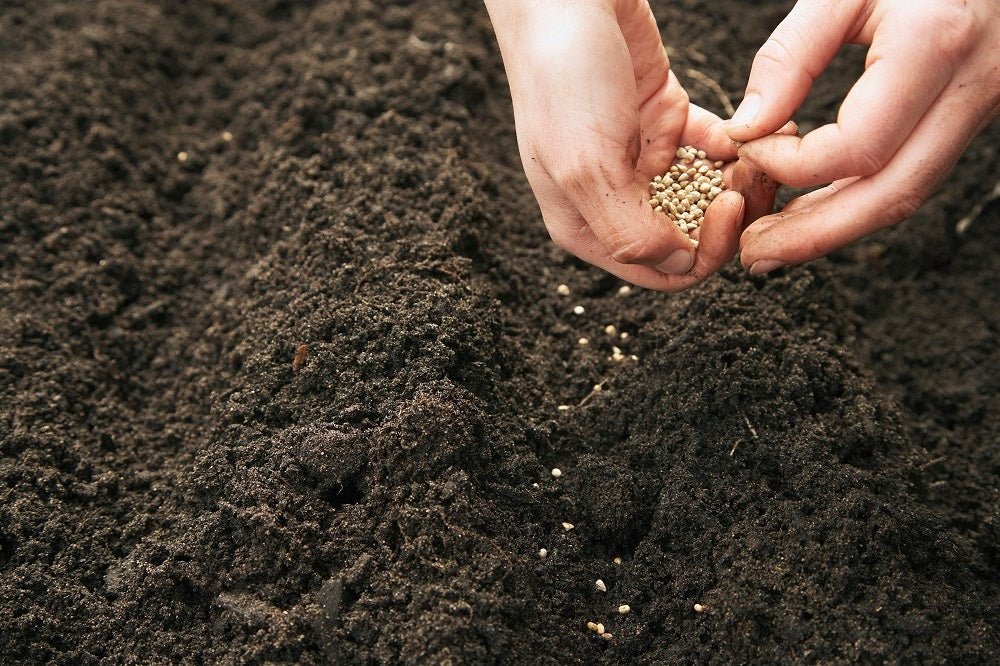
Organic Seeds: The Future of Organic Food
When it comes to the success of a movement as complex as organic agriculture, tiny little seeds may seem like a small matter, nowhere near as urgent as GMOs or pesticides. But in order for organic farming to feed the masses, it requires a mass of seeds. And they’re not as easy to come by as you might think.
When it comes to the success of a movement as complex as organic agriculture, tiny little seeds may seem like a small matter, nowhere near as urgent as GMOs or pesticides. But in order for organic farming to feed the masses, it requires a mass of seeds. And they’re not as easy to come by as you might think.
Growing Pains
It’s true that the organic food industry has made huge gains in popularity during the past decade, with sales numbers reaching $39 billion in 2015 to prove it. The good news is that all of that food was raised without the use of synthetic fertilizers or pesticides. However, many of the plants that grew that food (especially if they came from large-scale organic farms) sprouted from seeds bred by and for conventional farming systems because there isn’t enough organic seed supply currently available to meet the ever-growing demand. Organic farms are required by the USDA National Organic Program to use organic seeds. For a farm to keep its organic certification, it has to provide annual documentation that all seeds come from a certified organic source. When organic seed is lacking for a particular crop or not available in sufficient quantity (as is often the case with large-scale organic farms), the farm is allowed an exemption and can use conventional seeds instead, with some restrictions. While this allowance of non-organic seed is meant to help organic farmers, it means that large seed companies don’t have the necessary incentive to ramp up more costly organic seed production.Seeds for Success
Seeds are not static. Just like each human baby is born with a unique set of traits inherited from his or her parents, each seed ripens with its own singular blueprint, one that will either help or hinder its success in the field. If that blueprint is handed down from generations of plants raised on conventional farms, the seeds will perform best when grown with synthetic fertilizers and pesticides. Using organic seeds to grow organic crops both increases the crops’ overall integrity as an organic product and improves its performance in organic farming systems. Since organic farmers aren’t concerned with a crop’s ability to withstand strong chemicals, their selection criteria are more diverse, including things like field vigor, pest resistance, glossier leaves, higher nutrient density, and (perhaps most importantly) better flavor. Seeds saved from these crops will maintain most of their better qualities, as well as any other desired traits the farmer or seed breeder selects for, such as adaptability to climate changes.The Need for Organic Seed
Compared as industries, organic seed lags a couple of decades behind organic farming in production capacity and distribution efficiency. In their 2016 State of Organic Seed report, Organic Seed Alliance compiles the major challenges to achieving organic seed security, high among them being a lack of funding for organic seed breeding programs. Because the global seed industry has consolidated down to only a few major players who don’t profit from producing the high-quality seed required by organic farms, the organic seed industry is fragmented. Private organic breeders are usually small, low-budget operations and public breeding programs at State Universities (once the stronghold of traditional—read: non-GMO—breeding efforts) are seeing their funding reduced, or compromised by corporate interests. While emphasis on organic seeds may seem like a minor detail in the bigger picture of organic agriculture, it’s not. With corporate monopolies increasing their control of the world’s seed supply, we need organic seed producers more than ever. The future of our organic food supply depends on it.What You Can Do
- Buy organic. Increasing the demand for organic food will continue to increase the demand for organic seeds.
- Vote. Much of the legislation that influences organic seed production happens at the local level. Vote against the allowance of GMO crops in your region, the presence of which severely threatens organic seed production.
- Grow an organic garden. Gardening with organic varieties keeps them alive. Make an effort to buy organic seeds and plants. Not only will your organic garden perform better, you’ll help fund the future of the organic seed industry.

